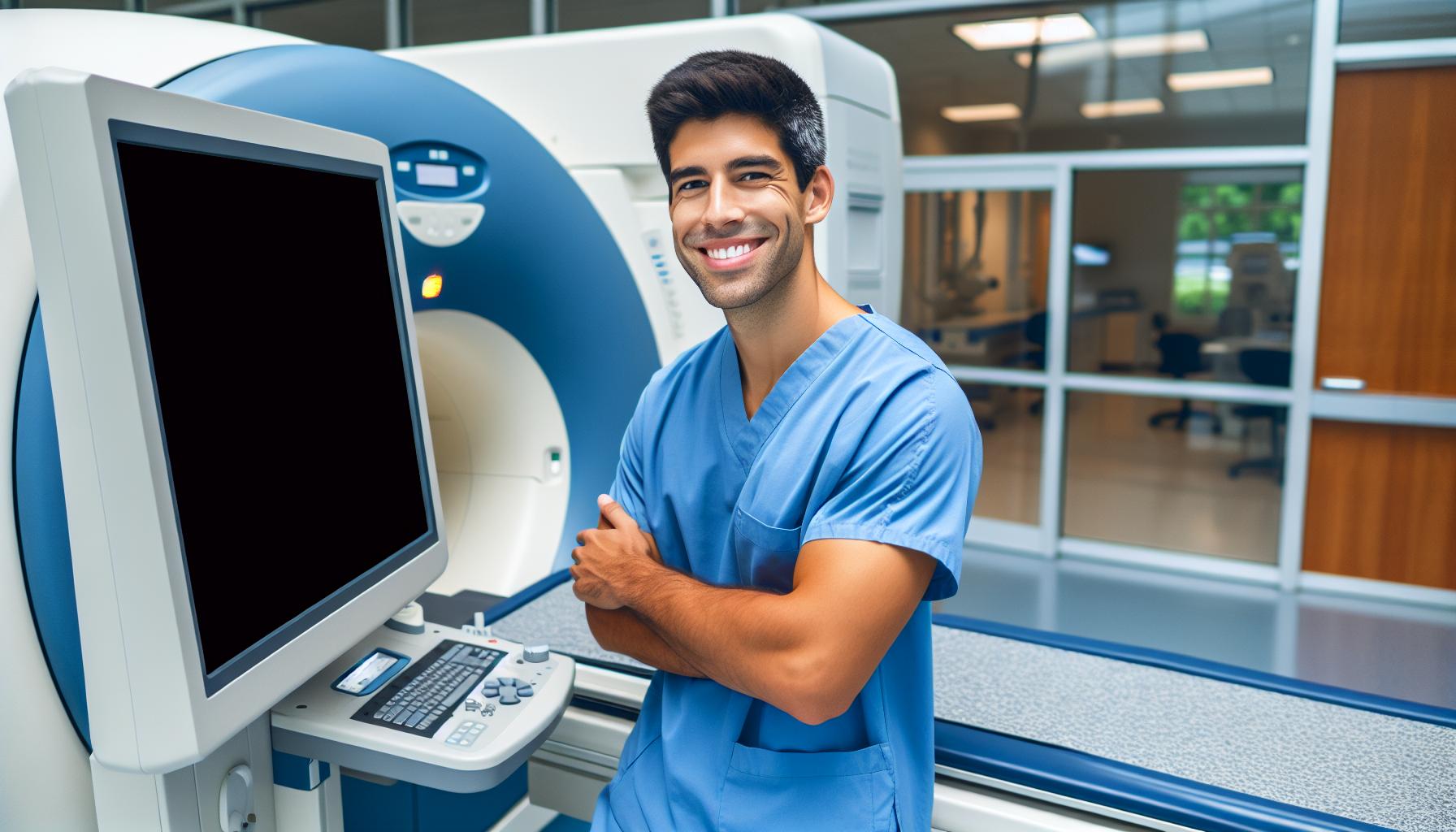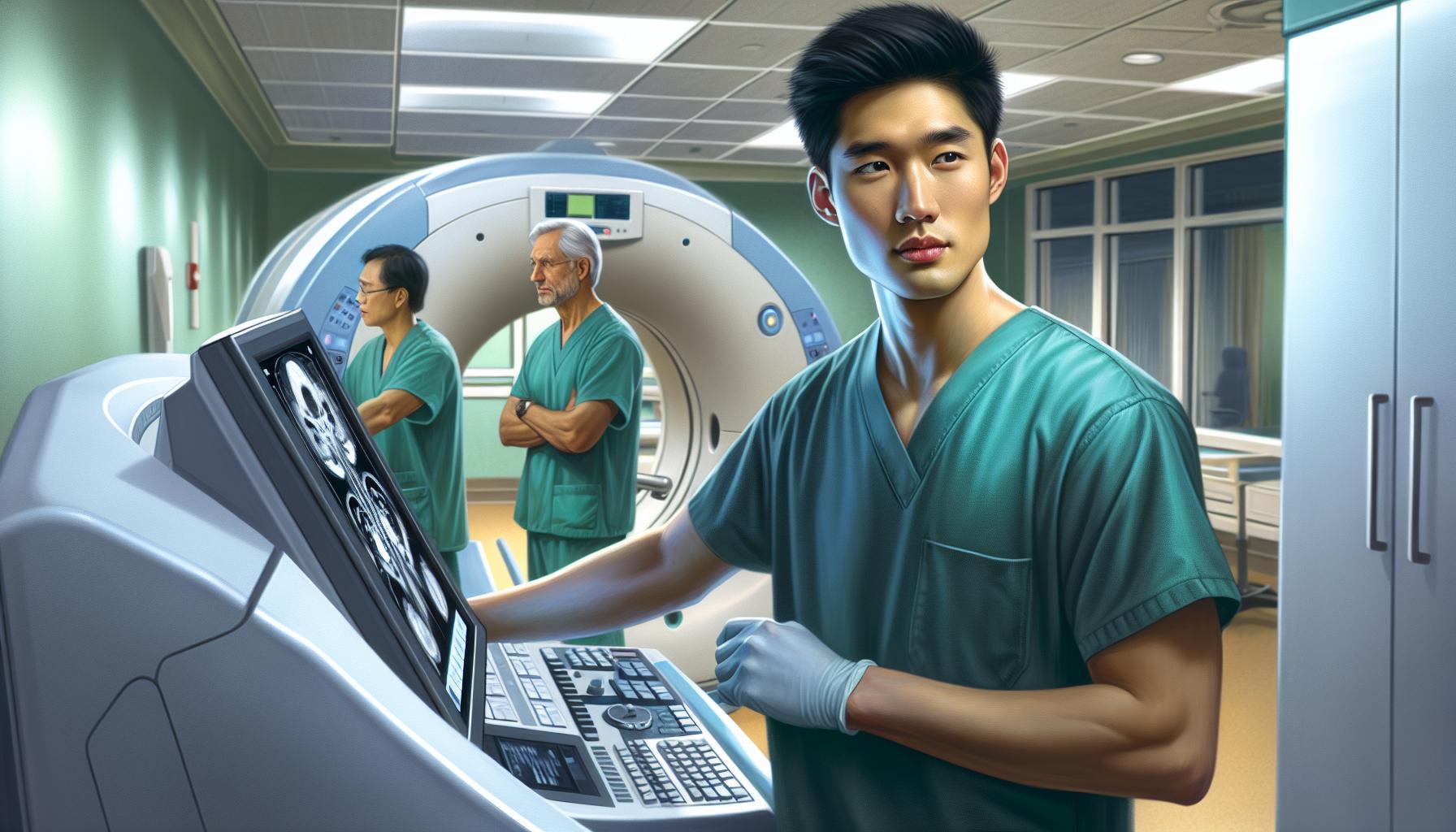As the healthcare industry continues to evolve, many are exploring the opportunities within it. One profession gaining attention is that of a radiology technician. With advancements in medical imaging technology and a growing demand for diagnostic services, this career path offers a unique blend of technical skills and patient interaction.
Radiology techs play a crucial role in diagnosing medical conditions, using imaging techniques like X-rays, MRIs, and CT scans. This profession not only promises job stability but also provides a chance to make a significant impact on patients’ lives. For those considering a career change or a fresh start, the question remains: is becoming a radiology tech a good choice? Let’s delve into the benefits and challenges of this rewarding field.
Is a Radiology Tech a Good Career
Radiology technology offers critical support in medical diagnostics. Radiology technicians, or radiologic technologists, specialize in creating images of the human body using various imaging methods. This role includes operating equipment such as X-ray machines, magnetic resonance imaging (MRI) scanners, and computed tomography (CT) scanners.
Radiology techs play a vital role in patient care. They prepare patients for imaging procedures, ensuring comfort and safety while providing clear instructions. Effective communication skills are essential, as techs often explain complex procedures to patients who may feel anxious.
Educational pathways for radiology techs often include an associate’s degree, which typically requires two years of study. Some may pursue bachelor’s degrees for advanced opportunities. Certification from recognized organizations, such as the American Registry of Radiologic Technologists (ARRT), enhances job prospects and credibility.
Employment opportunities in radiology technology are abundant. The U.S. Bureau of Labor Statistics projects a 9% job growth for radiologic technologists from 2020 to 2030, indicating strong demand. Hospitals, imaging clinics, and outpatient care centers often seek qualified professionals.
Technological advancements continuously shape the field of radiology. Innovations in imaging techniques and digital technology improve diagnostic accuracy and patient outcomes. Radiology techs must adapt to these changes through ongoing education and training, maintaining their skills and knowledge in an evolving environment.
Benefits of Being a Radiology Tech

Radiology techs enjoy numerous benefits, making this career appealing in the healthcare sector. The combination of job security, a competitive salary, and opportunities for advancement enhances the attractiveness of this profession.
Job Security and Demand
Job security remains a significant advantage for radiology techs. The demand for qualified radiologic technologists is on the rise, driven by an aging population and increased reliance on diagnostic imaging. According to the U.S. Bureau of Labor Statistics, employment for radiologic technologists is expected to grow by 9% from 2020 to 2030. This growth translates to ample job opportunities in hospitals, imaging clinics, and outpatient care centers, ensuring that radiology techs can find stable and rewarding employment.
Competitive Salary
 Radiology techs enjoy a competitive salary, reflecting their essential role in healthcare. As of May 2022, the median annual wage for radiologic technologists was approximately $63,710. Salaries can vary based on experience, location, and specialized skills, with some radiology techs earning upwards of $80,000 per year. This financial incentive, combined with the potential for overtime, makes a career in radiology an attractive option for many individuals.
Radiology techs enjoy a competitive salary, reflecting their essential role in healthcare. As of May 2022, the median annual wage for radiologic technologists was approximately $63,710. Salaries can vary based on experience, location, and specialized skills, with some radiology techs earning upwards of $80,000 per year. This financial incentive, combined with the potential for overtime, makes a career in radiology an attractive option for many individuals.
Opportunities for Advancement
Career advancement opportunities abound for radiology techs. Professionals can pursue specialization in areas such as MRI, CT, or mammography, enhancing their skill set and marketability. Advanced certifications can lead to higher-paying positions, including supervisory or managerial roles. Additionally, many radiology techs transition into related fields, such as radiology administration or education, further diversifying their career prospects. Continuous learning and engagement in professional development ensure that radiology techs can navigate their career paths effectively.
Challenges of the Profession
Radiology technicians encounter several challenges that can impact their daily work life. Understanding these challenges helps potential candidates assess whether this career is a suitable fit.
Job-Related Stress
Job-related stress is prevalent in radiology tech positions due to high patient volumes and demanding schedules. Technicians often juggle multiple tasks, including operating complex imaging equipment, ensuring patient safety, and adhering to strict protocols. Deadlines for reporting results add pressure, as timely diagnoses are crucial for patient care. Communication with healthcare providers amplifies stress, as clear and accurate information is essential for effective treatment. Additionally, emotional encounters with critically ill patients can heighten stress levels, necessitating strong coping mechanisms.
Continuing Education Requirements
Continuing education requirements present another challenge for radiology technicians. Technological advancements in imaging techniques and equipment necessitate ongoing training to maintain high standards of practice. To stay certified, many states and employers require techs to complete a specific number of continuing education credits periodically. Balancing work and educational commitments can be demanding, especially for those juggling family or additional job responsibilities. Keeping up with industry changes is essential, yet it adds a layer of complexity to the professional responsibilities of radiology techs.
Skills Required for Success
Radiology technicians require a diverse set of skills to thrive in their roles. These skills encompass both technical and interpersonal aspects crucial for effective patient care and diagnostics.
Technical Skills
Radiology techs must possess strong technical proficiencies. These include:
- Imaging Equipment Operation: Radiology techs should confidently operate machines like X-ray, MRI, and CT scanners. Expertise in equipment handling ensures accurate image acquisition and enhances diagnostic capabilities.
- Image Processing: Radiology techs must understand imaging software to manipulate and enhance images for optimal clarity. Knowledge of radiographic techniques aids in producing high-quality diagnostic images.
- Radiation Safety: Radiology techs need to apply safety protocols effectively. Understanding radiation exposure limits protects patients and staff, ensuring compliance with health regulations.
- Technical Problem-Solving: Radiology techs should demonstrate troubleshooting skills for equipment malfunctions. Quick resolution of technical issues minimizes downtime and maintains workflow efficiency.
- Communication: Radiology techs should communicate clearly with patients about procedures. Effective verbal skills help ease patient anxiety and ensure they understand the process.
- Compassionate Care: Radiology techs need to demonstrate empathy toward patients. Compassionate interactions foster trust, which enhances patients’ comfort and cooperation during procedures.
- Collaboration: Radiology techs should work collaboratively with physicians and other healthcare professionals. Teamwork is crucial for accurate diagnosis and treatment planning.
- Adaptability: Radiology techs must adjust to diverse patient needs and various medical environments. Flexibility allows them to respond effectively to unexpected challenges while maintaining high care standards.
Job Stability
Choosing a career as a radiology technician offers a blend of stability and fulfillment. With the healthcare industry evolving and the demand for diagnostic imaging on the rise, this profession stands as a viable option for those seeking meaningful work. Radiology techs not only enjoy competitive salaries and opportunities for advancement but also play a crucial role in patient care.
While the challenges of the job can be significant, the rewards often outweigh them. For individuals considering a career change or embarking on a new path, becoming a radiology technician can lead to a satisfying and impactful career in healthcare.
